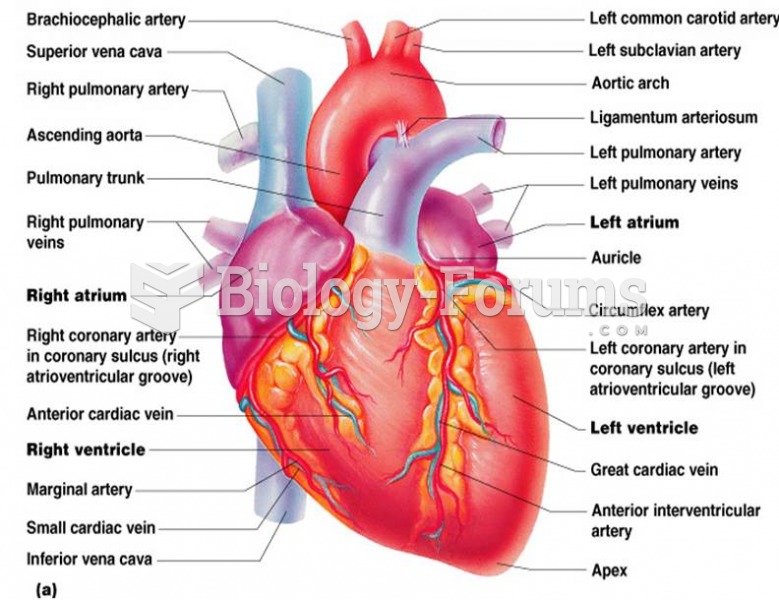|
|
|
There are 20 feet of blood vessels in each square inch of human skin.
Egg cells are about the size of a grain of sand. They are formed inside of a female's ovaries before she is even born.
Nearly all drugs pass into human breast milk. How often a drug is taken influences the amount of drug that will pass into the milk. Medications taken 30 to 60 minutes before breastfeeding are likely to be at peak blood levels when the baby is nursing.
Signs of depression include feeling sad most of the time for 2 weeks or longer; loss of interest in things normally enjoyed; lack of energy; sleep and appetite disturbances; weight changes; feelings of hopelessness, helplessness, or worthlessness; an inability to make decisions; and thoughts of death and suicide.
On average, the stomach produces 2 L of hydrochloric acid per day.







